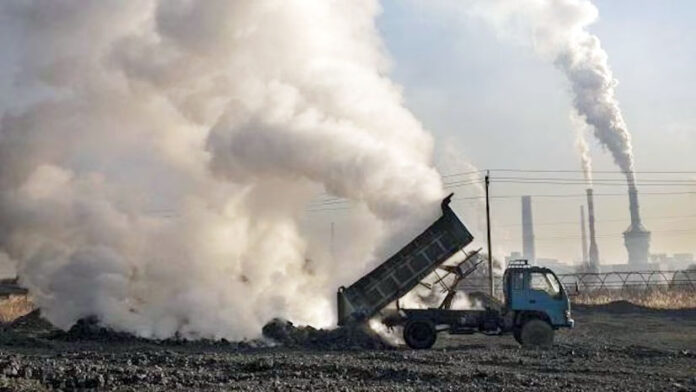London, May 21
Climate change could be much more damaging for the world economy than previously thought. Even one-degree Celsius rise in temperature could potentially result in as much as 12 per cent reduction in global GDP, or about six times more than previous estimates, a new study has concluded.
The study by two economists — Adrien Bilal of Harvard University and Diego Kanzig of Northwestern University in the United States — says the world could see “precipitous declines” in outputs, capital and consumption if temperature is allowed to increase unabated to reach the predicted 3 degree Celsius rise by the end of the century. “A 1 degree Celsius increase to global mean temperature (from current levels) leads to a gradual decline in world GDP that peaks at 12 per cent after six years and does not fully mean-revert even 10 years after the shock,” the authors say in the study.
Global GDP in 2022 was measured to be about 100 trillion US dollars.The global mean temperature has already risen by about one degree Celsius from pre-industrial times (the average of 1850-1900 period). The study talks about economic impacts of temperature rise from current levels.
They authors say that their estimates of the shock of temperature rise on economic activities is larger than previous calculations, mainly because they rely on new datasets that better capture the changes in global mean temperatures. Previous such studies had based their findings on country-level changes in temperatures and not on global rise in temperature, the authors say.
“It turns out that global temperature has much more pronounced impacts on economic activity than local temperature… The estimated effects of global temperature shocks are about seven times larger than for local temperature shocks, based on the same empirical model and the same sample period,” the study says.
“Global temperature shocks predict a large and persistent rise in extreme climatic events that cause economic damage — extreme temperature, extreme wind, and extreme precipitation. By contrast, local temperature shocks predict a much weaker rise in extreme temperature, and barely any rise in extreme wind speed and precipitation. This conclusion is consistent with the geoscience literature — extreme wind and precipitation are outcomes of the global climate that depend on ocean temperatures and atmospheric humidity throughout the globe, rather than outcomes of idiosyncratic local temperature realizations,” it says.
The study also finds that per capita world GDP would have been 37 per cent higher today had the global mean temperatures not risen by about 0.75 degree Celsius between 1960 and 2019.
The study does not just factor in the damages from extreme weather events and the costs of reconstruction, but calculates a ‘social cost of carbon’ and the slowdown in productivity that is expected to happen because of rising temperatures, and the consequent climate change.



























